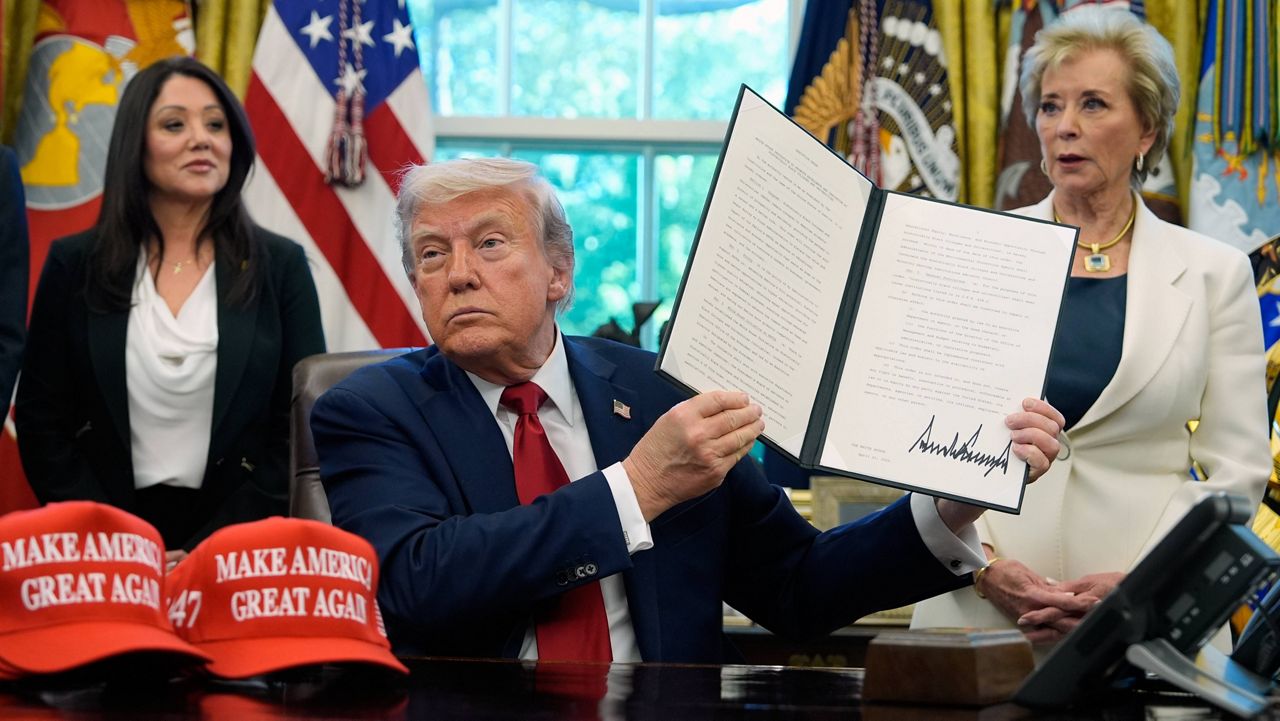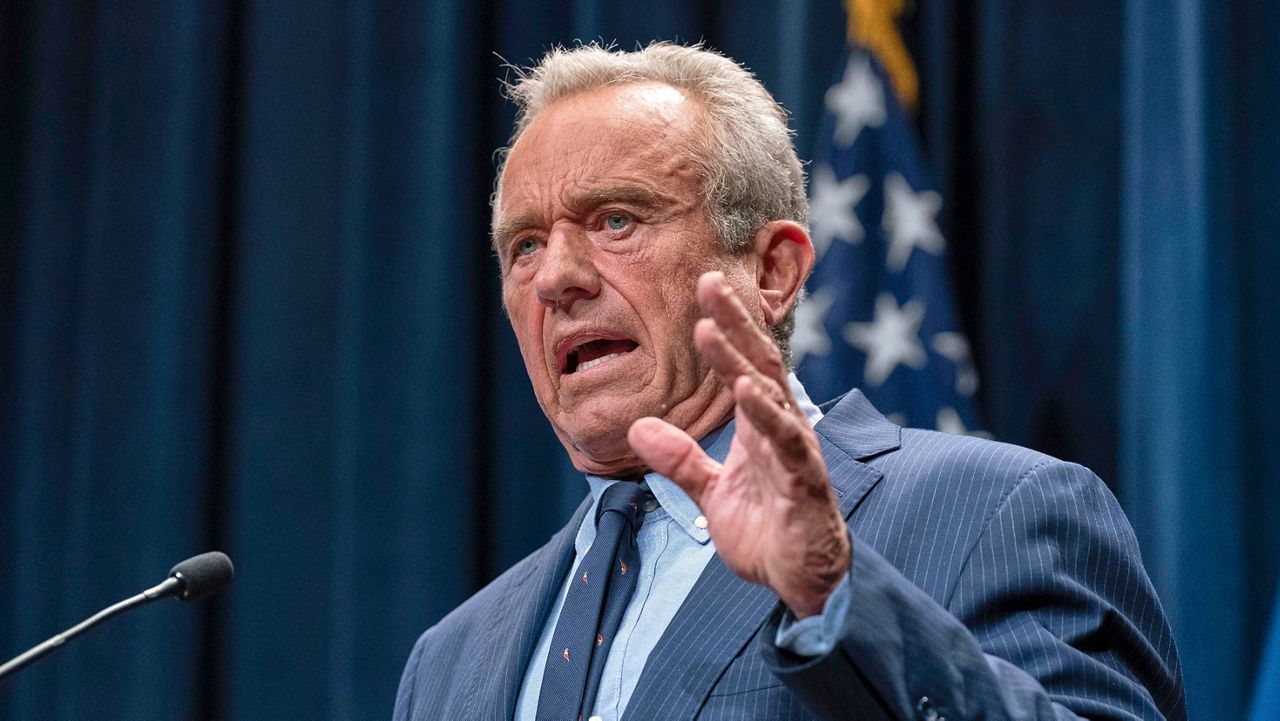Democrats in the United States Senate are facing an uphill battle to maintain their thin majority this fall.
In total, Democrats are defending 22 Senate seats in November – double the number Republicans have to protect.
Michigan Sen. Gary Peters is chair of the Democratic Senatorial Campaign Committee, the group tasked with keeping Democrats in control of the chamber.
“I feel good. We are going to hold the majority,” Peters told Spectrum News in an interview this week.
Currently, the Senate is a closely divided 51 to 49. The majority is made up of 47 Democrats and four independents who vote with them. In November, 22 of those seats are at stake. (A 23rd seat, in West Virginia, is widely expected to flip to Republican because Democrat-turned-Independent Sen. Joe Manchin is retiring)
These 10 Senate races standout as the ones to watch: five that feature Democratic incumbents trying to keep their seats (Montana, Nevada, Ohio, Pennsylvania, and Wisconsin); three that are open contests triggered by retirements (Arizona, Maryland, and Michigan); and two that are Republican-held seats that Democrats feel they have a shot at flipping (Florida and Texas).
Peters argued Democrats have an advantage in what he calls “candidate quality.” He said most of their candidates in competitive races have deep roots in their state and are well-known political brands. He pointed out that Republican candidates in Senate battlegrounds like Montana, Wisconsin, Pennsylvania, and Nevada either moved to their states in recent years or spent years living elsewhere.
“What we found with Republicans is that they’ve recruited a lot of very wealthy folks who can self-fund their campaigns, but they don’t really have much contact with their state,” Peters said. “Oftentimes they’re really out-of-staters that are just parachuting into the state and saying ‘hey, I want to be your senator.’ That simply does not fly.”
The two toughest races for Democrats are in Montana and Ohio, where incumbent Sens. Jon Tester and Sherrod Brown, respectively, are each trying to win fourth terms in states former President Donald Trump, a Republican, won twice.
Tester leans heavily into being a third-generation Montana dirt farmer who lost three fingers in a meat grinder, while Brown regularly touts his Ohio roots and advocacy for the everyday worker.
Spectrum News asked Peters what, beyond their brands, the two men have to do this year to win.
“Well the brand is important. And it is about a candidate or an incumbent that people know and can see what they have done over the years to fight for them,” he said.
Peters added: “They still are able to out-perform what a generic Democrat would do in that state. And it’s because of who they are, their personality, and this election because of the contrast between them and their opponents who are not ready for primetime for many reasons.”
Tester is facing first-time candidate Tim Sheehy, a former Navy SEAL who owns an aerial firefighting company. Brown is taking on Bernie Moreno, a businessman who owned luxury car dealerships and has never held elected office.
All of these Senate races are of course playing out as President Joe Biden and Trump faceoff in a rematch for the White House.
Recent polling has shown several Democratic Senate candidates running ahead of Biden in their states.
Spectrum News asked Peters if he feels Biden is helping or hurting Senate Democrats’ most competitive races.
“Having a president is always a good thing. And he’ll continue to do well. I’m confident he is going to win the presidency as well – he will be reelected as president,” Peters said. “But we’re going to work together and ultimately, though, in Senate races, Senate races are about a candidate to candidate matchup.”
Peters explained that he advises his candidates to run on local issues like they are running for mayor. In addition, for the second cycle in a row, Peters has directed the DSCC to spend more money on direct outreach to voters than on television ads.
Spectrum News has asked Peters’ Republican counterpart, Montana Sen. Steve Daines, for an interview and hopes to speak with him soon.







_crop)

